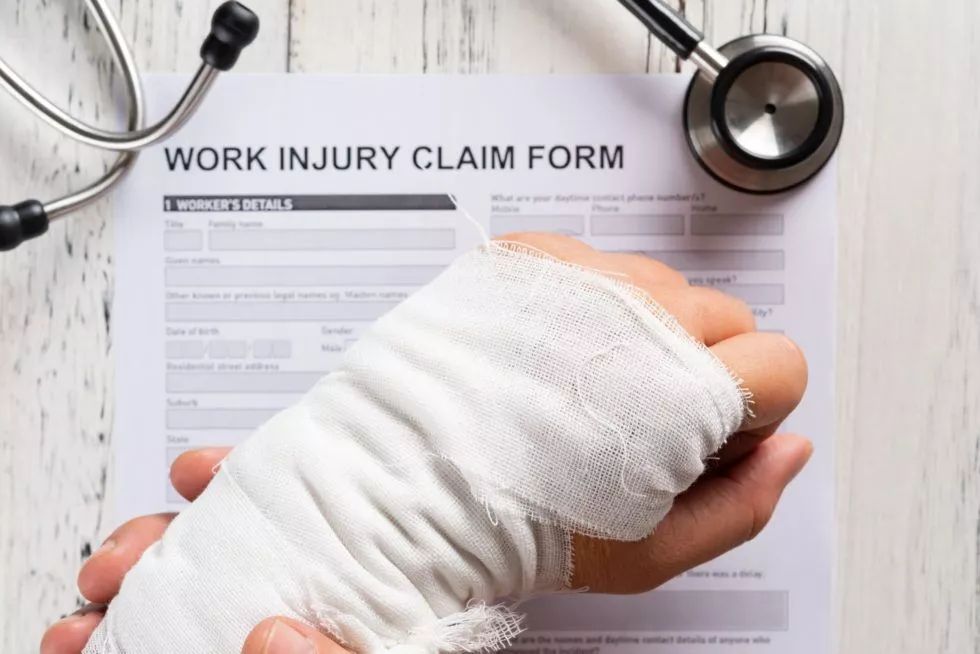My Workers’ Compensation Case Is Pending, Can I File for Bankruptcy?
While workers’ compensation provides many protections for people injured on the job, workplace injuries are still incredibly disruptive financially for many families. Mortgage payments might pile up. Family members might have to take time off or even leave work to provide home care. Long drives to specialist appointments might become a weekly drain on time and resources.
It’s no surprise then that nearly two thirds of personal bankruptcies are related to healthcare expenses and missed time off work during a health crisis, according to the American Journal of Public Health. For many folks, bankruptcy feels like the only way out of crushing debt.
But if you have a pending workers’ comp case and you’re considering filing for bankruptcy, it’s important to consider all of your options first. Failing to manage these two, separate legal processes correctly can have major consequences.
Bankruptcy and workers’ compensation
Individuals typically file for either Chapter 13 or Chapter 7 bankruptcy.
With Chapter 13 bankruptcy, you create a payment plan to repay a portion of your debts over 3 to 5 years. While you are involved in bankruptcy proceedings for quite some time, you are usually able to keep your home and some of your property.
If you’re already in the middle of a Chapter 13 bankruptcy and you’re hurt at work, it’s important to let your bankruptcy lawyer know right away, as your income will be less with workers’ comp payments. Under your original plan, you may find it hard to keep up with your payments.
With Chapter 7 bankruptcy, your property is liquidated over a few months to discharge your debts. While some of your personal property is exempt, like your car, work tools and a portion of your home equity, it’s very important to disclose all of your assets, including any pending workers’ comp cases. If you’re hurt in the narrow window of Chapter 7 bankruptcy, your workers’ comp payments are not included. If you choose a lump sum payment, the payment will likely be exempt as well, though you must confirm this is the case with a bankruptcy attorney. Your workers’ comp attorney will also have to work with the bankruptcy estate, receiving approval for the settlement.
Bankruptcy and workers’ comp: what you need to know
It’s incredibly challenging to be in a situation where you’re considering bankruptcy. It may feel like there are no other options, and, in some cases, it’s true that bankruptcy is the best path forward. However, it is smart to consider whether creditors will negotiate before you pursue bankruptcy. Bankruptcy will seriously damage your credit for years afterward. This may lead to long-term financial consequences, like higher insurance payments, limited options for borrowing and even trouble landing a job—a valid concern for someone who has already experienced an on-the-job injury.
Note, too, that child support, alimony, student loans and some taxes can’t be discharged through bankruptcy.
If you do decide to pursue bankruptcy, or if you’re already involved in bankruptcy proceedings when you’re hurt at work, it’s critical to speak to both a workers’ comp attorney and a bankruptcy lawyer. Workers’ compensation and bankruptcy are both complex processes, each with their own hard and fast rules and timelines. Without proper legal advice on your options and your timing, you could make a mistake that nets you penalties or costs you the workers’ comp income you very likely need.
If you have a pending workers’ comp case, you’ll also want to make the most out of your potential settlement. An experienced workers’ comp lawyer can help you get a fair settlement.
Contact a workers’ compensation lawyer in Atlanta
If you’re considering bankruptcy in the middle of the workers’ comp process, you can’t afford missteps. A workers’ comp attorney will help advise you of your options, all while working to obtain the best outcome possible for your injury case. Contact the Law Offices of Laura Lanzisera today for a free consultation, or give us a call at 404-991-5097.
